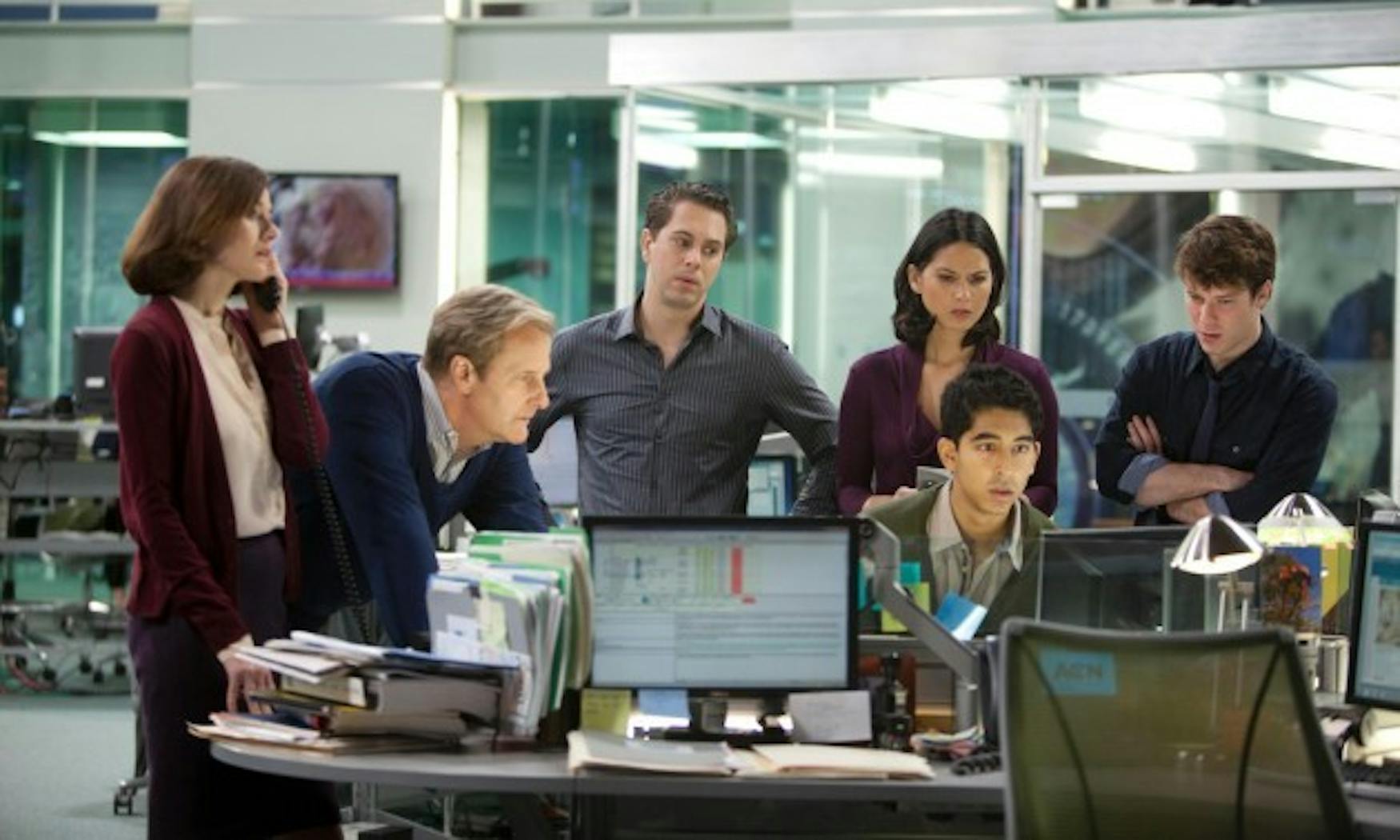HBO series is preachy, but improving
If you've seen just one of Aaron Sorkin's works, you know his classic style -witty, verbose, entertaining and fast-paced-and his newest HBO series, The Newsroom, is no exception.
The series is Sorkin's first crack at a television series since his much-beloved The West Wing ended in its seventh season and Studio 60 on the Sunset Strip failed in its first season six years ago.
Just as The West Wing provided liberals with the perfect president in Josiah Bartlet, The Newsroom offers a romanticized news anchor willing to bash the Tea Party and Republican candidates.
The premise of the first season revolves around a popular news show hosted by veteran anchor Will McAvoy (Jeff Daniels). The show was a success until Will had a breakdown and took a hiatus forced on him by his corporate bosses. When he returned to work, Will found that his staff had jumped ship to run a different broadcast.
Will is forced to rebuild his show with the few remaining staff and his former girlfriend and newly appointed executive producer, Mackenzie MacHale (Emily Mortimer). It isn't long before we learn that Mac, as she is known, cheated on Will when they were dating several years earlier, providing one of several romantic plotlines.
This new nightly broadcast-affectionately called "News Night 2.0" by its energetic and surprisingly competent staff-gives Sorkin his chance to build an idyllic newsroom that ignores the ratings and isn't afraid to offer opinion based on Will's understanding of the facts. Sorkin believes the news industry has lost its way and The Newsroom may just be his instructions on how to fix it.
Perhaps the most intriguing difference between The West Wing and The Newsroom is Sorkin's use of the recent past in his new series, which allows for an even more potent message. This device, however, also creates new problems for Sorkin's TV show.
One episode, for example, tracks the news team's response to the killing of Osama Bin-Laden. The viewer watches as the team (John Gallagher, Jr., Alison Pill, Olivia Munn and Dev Patel, among others) tries to confirm that the terrorist leader is dead.
Other episodes take aim at the Koch brothers, the Tea Party and Nancy Grace's coverage of the Casey Anthony trial.
"The commoditization of news has created an environment in which we're told that certain things are important that simply aren't," Sorkin told The New York Times.
Overall, the mission of the show seems to be twofold. One: convince viewers that there is something wrong with the way this generation of newspeople reports the news, and two: bash the Republicans.
The message, however, is all too clear in the characters' diatribes and rants. Sorkin's sermons therefore are often patronizing and self-righteous. They are particularly condescending because of the real-life element of the show.
Mackenzie, for example, erupts in a rant in the first episode: "There is nothing that's more important in a democracy than a well-informed electorate," she says to Will. "When there's no information, or much worse, wrong information, it can lead to calamitous decisions and clobber any attempts at vigorous debate."
A great writer allows viewers to absorb a lesson through the length of a TV show or book; Sorkin, however, tries to shove it down our throats.
Sorkin has been known to spout his political views through The West Wing and lectures in Studio 60. The difference is that the Washington-based show maintained the allusion of pure fiction. It was believable to imagine a utopian presidency in a make-believe realm. However, injecting fiction with reality, as Sorkin does in The Newsroom, turns me off to his lessons of newsroom purity.
*




Please note All comments are eligible for publication in The Justice.